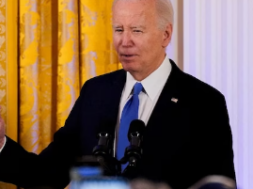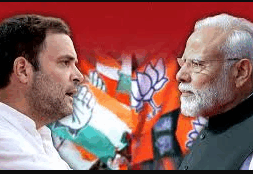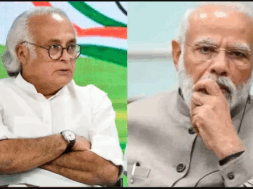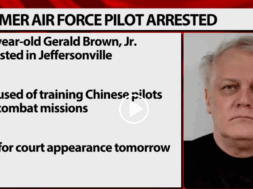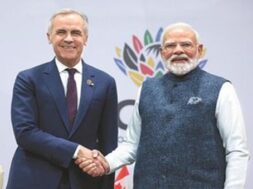
NEW DELHI, Feb 1: The United States has cleared India’s proposal to purchase 31 MQ-98 Sea Guardian drones to India at over $4 Billion. The Defence Security Cooperation Agency (DSCA) has delivered the required certification, notifying the US Congress of the possible sale on Thursday.
India had made the proposal during the Prime Minister Narendra Modi’s state visit to the US last year. The Biden administration’s approval is a landmark in the government-to-government deal.
“This proposed sale will support the foreign policy and national security objectives of the United States by helping to strengthen the U.S.-Indian strategic relationship and to improve the security of a major defence partner which continues to be an important force for political stability, peace, and economic progress in the Indo-Pacific and South Asia region,” the DSCA said.
“The proposed sale will improve India’s capability to meet current and future threats by enabling unmanned surveillance and reconnaissance patrols in sea lanes of operation. India has demonstrated a commitment to modernizing its military and will have no difficulty absorbing these articles and services into its armed forces,” the agency added.
The Indian Navy will get 15 Sea Guardian drones and the Army and the Air Force will get eight each of the land version of the drones – Sky Guardian. The MQ-9B is manufactured by General Atomics Aeronautical, a private defence firm in the US, but the procurement is part of a government-to-government deal.
The critical defence deal was in the works for close to six years and Prime Minister Narendra Modi’s US visit marked the final go-ahead and the government-to-government $3.99 billion deal was finalized. The 31 drones will be used by the Indian Army, Navy and the Air Force.
The approval by the US agency comes at a time when media reports were circulating that the US had put the deal on hold over the alleged failed plot by an Indian national to kill India-designated Khalistani terrorist Gurpatwant Singh Pannun.
The Biden administration’s sign-off indicates the deal’s progress, though the spokesperson of the US State Department, Matthew Miller, earlier, neither accepted nor denied the report and said, “Of course, Congress plays an important role in the US arms transfer process. We routinely consult with members of Congress on the foreign affairs committees before our formal notification so we can address questions that they might have, but I don’t have any comment on when that formal notification might take place,” adding that he has not seen reports appearing on this in the Indian press.
External Affairs Ministry Spokesperson, Randhir Jaiswal, in a press conference, tried to clear the air surrounding the report and said, “This particular matter relates to the US side. They have their internal processes in place and we are respectful of that. That is where I would like to leave my comment.”
The proposed procurement had also figured in US Defence Secretary Lloyd J Austin’s talks with his Indian counterpart Rajnath Singh in Delhi in November. The Defence Acquisition Council last year accorded the Acceptance of Necessity or initial approval for the acquisition of 31 MQ-9B drones from the US under the foreign military sale route.
The drones, also ‘Predators’, are remotely-piloted aircraft systems, which can be used for offensive missions, reconnaissance, surveillance and intelligence operations around the globe. They can fly over the horizon through a satellite for up to 40+ hours and termed as High Altitude Long Endurance (HALE) drones.
The drones can also carry the laser-guided four Hellfire Missiles and 450kg bombs and is part of the landmark defence deal. The drones may see deployment along the Line of Actual Control (LAC) with China and on warships for missions in the Indian Ocean region. The use of remotely piloted systems marks a shift in warfare, where platforms like drones play an important role along with human-powered platforms.
(Manas Dasgupta)
